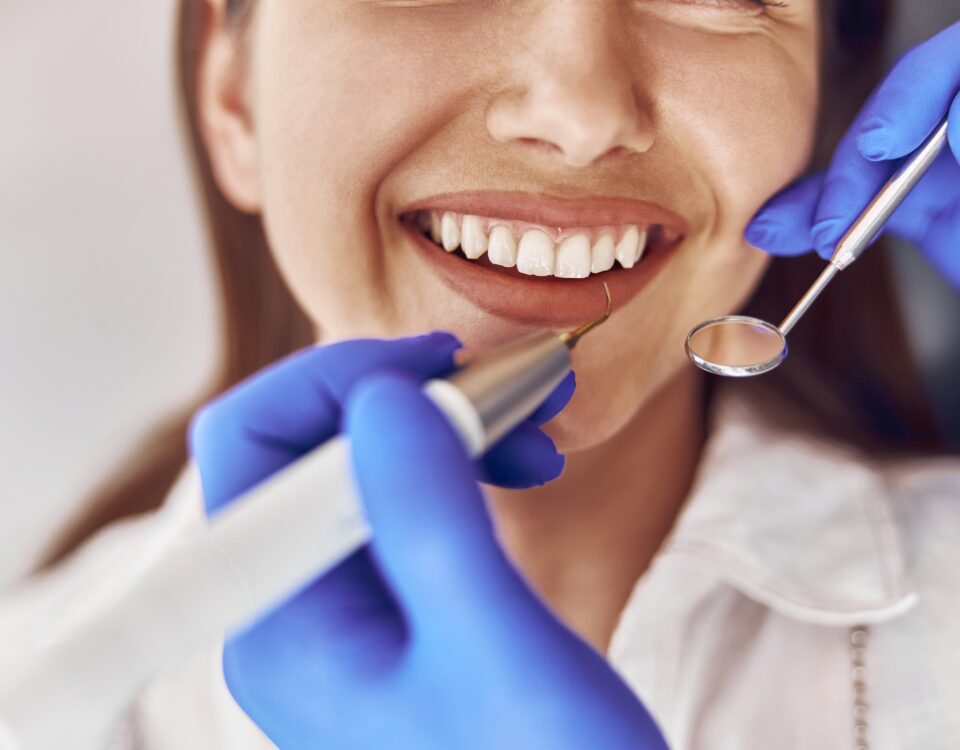What Determines Your Tooth Decay Risk?

Choose Root Canal Treatment to Save an Infected Tooth
March 29, 2023
Restore Your Smile with Same Day Crowns
April 14, 2023What Determines Your Tooth Decay Risk?

Do you know what determines your tooth decay risk? It’s not just how often you brush and floss – there are other factors at play. In this blog post, we will discuss the things that make some people more prone to tooth decay than others. We will also talk about ways to reduce your risk of developing cavities. So, if you’re interested in keeping your teeth healthy for life, keep reading!
What is Tooth Decay?
Tooth decay is the breakdown of enamel, or outer layer of your tooth. When this happens, bacteria can enter and cause cavities. Cavities, if left untreated, can lead to more serious dental problems like periodontal disease and even tooth loss.
Causes of Tooth Decay
Cavities are caused by tooth decay — a process that occurs over time. Here’s how tooth decay develops:
- Plaque forms. Dental plaque is a clear sticky film that coats your teeth. It’s due to eating a lot of sugars and starches and not cleaning your teeth well. When sugars and starches aren’t cleaned off your teeth, bacteria quickly begin feeding on them and form plaque. Plaque that stays on your teeth can harden under or above your gum line into tartar (calculus). Tartar makes plaque more difficult to remove and creates a shield for bacteria.
- Plaque attacks. The acids in plaque remove minerals in your tooth’s hard, outer enamel. This erosion causes tiny openings or holes in the enamel — the first stage of cavities. Once areas of enamel are worn away, the bacteria and acid can reach the next layer of your teeth, called dentin. This layer is softer than enamel and less resistant to acid. Dentin has tiny tubes that directly communicate with the nerve of the tooth causing sensitivity.
- Destruction continues. As tooth decay develops, the bacteria and acid continue their march through your teeth, moving next to the inner tooth material (pulp) that contains nerves and blood vessels. The pulp becomes swollen and irritated from the bacteria. Because there is no place for the swelling to expand inside of a tooth, the nerve becomes pressed, causing pain. Discomfort can even extend outside of the tooth root to the bone.
Symptoms
The most common symptoms of tooth decay are:
- Tooth sensitivity – Many people experience a sharp pain or discomfort when they consume something hot, cold, sweet, or sour. This is due to the dentin being exposed and irritated.
- Visible holes in teeth – Cavities can be seen on X-rays and with the naked eye. If a cavity becomes large enough, it can be seen as a dark spot or hole on the surface of your tooth.
- Pain when chewing – As cavities progress, they can cause sharp pain when you bite down on something hard.
What Determines Your Risk?
The main risk factors for tooth decay are not taking care of your teeth and having too many sugary or starchy foods and drinks.
Some people have a higher risk of tooth decay, including people who:
- Don’t have enough saliva, because of medicines, certain diseases, or some cancer treatments
- Don’t get enough fluoride
- Are very young. Babies and toddlers who drink from bottles are at risk, especially if they are given juice or get bottles at bedtime. This exposes their teeth to sugars for long periods of time.
- Are older. Many older adults have receding gums and more wear on their teeth. These raise the risk of decay on the exposed root surfaces of their teeth.
How Tooth Decay Can Affect Your Entire Body
Tooth decay can have serious implications on your overall health. Poor oral hygiene (including cavities) has been linked to other health issues such as heart disease, stroke, and diabetes. Untreated cavities can also cause pain or infection that may spread to other parts of the body.
Fortunately, there are a few simple steps you can take to reduce your risk of tooth decay, such as brushing and flossing regularly, eating a healthy diet, avoiding sugary foods, and using fluoride treatments. With the right care and prevention, you can keep your teeth strong and healthy.
Prevention
The best way to prevent tooth decay is by taking good care of your teeth. Here are some tips for how you can do that:
- Brush and floss twice a day to remove plaque and food debris from your teeth
- Use fluoride toothpaste with the American Dental Association (ADA) Seal of Acceptance
- Eat a healthy diet full of fruits, vegetables, and whole grains
- Limit sugary foods and drinks like candy, soda, and juice
- Visit your dentist regularly for professional cleanings and check-ups
- Use fluoride treatments as recommended by your dentist or hygienist
By following these tips, you can reduce your risk of tooth decay and maintain a healthy smile.
Make an Appointment with Mountain Aire Dentistry
If you’re concerned about your risk of tooth decay, getting regular dental check-ups is a good place to start. At Mountain Aire Dentistry, our experienced team is dedicated to providing quality care and helping you maintain optimal oral health. Contact us today to schedule an appointment!
When you visit our Broomfield dental office, your smile is our top priority. Our Dentists invite you to experience the difference a warm and caring team can provide for you and your family. Enjoy a unique and comfortable dental experience designed to bring a healthier and happier smile back into your life. We invite you to call or visit our Broomfield dental office and discover the exceptional difference we offer to those we serve.













